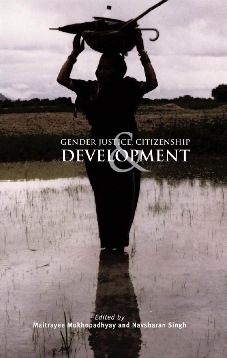About IDRC
A Crown corporation, we support leading thinkers who advance knowledge and solve practical development problems. We provide the resources, advice, and training they need to implement and share their solutions with those who need them most. In short, IDRC increases opportunities—and makes a real difference in people’s lives.
Working with our development partners, we multiply the impact of our investment and bring innovations to more people in more countries around the world. We offer fellowships and awards to nurture a new generation of development leaders.
What we do
IDRC funds research in developing countries to create lasting change on a large scale.
To make knowledge a tool for addressing pressing challenges, we
- provide developing-country researchers financial resources, advice, and training to help them find solutions to local problems.
- encourage knowledge sharing with policymakers, researchers, and communities around the world.
- foster new talent by offering fellowships and awards.
- strive to get new knowledge into the hands of those who can use it.
In doing so, we contribute to Canada’s foreign policy, complementing the work of Global Affairs Canada, and other government departments and agencies.
Resources
Displaying 151 - 155 of 324Gender Justice, Citizenship and Development
This book explores the meanings of gender justice and the practice of citizenship as shaped by context-specific histories, cultures and struggles. It presents a conceptual framework and provides four regional perspectives and a guideline for development programs. The section on Sub-Saharan Africa in particular focuses on the the definition of citizenship in the female experience as more than simply a formal relationship between the individual and the State, but also involving her position in a family, a community and an ethnic group.
Wetland uses / dynamics for agricultural purposes and its health implications in lower Ogun river basin, Lagos, Nigeria : a technical report
The wetlands around the estuaries of Ogun River and its environs in Ikorodu/Kosofe areas of Lagos State remain unprotected. 60 per cent of Lagos metropolis was originally natural wetlands. This study tackles the quantification of land use/landcover (especially wetlands), causes, land use dynamics and the health implications through direct observations using remote sensing, surveys, disease vector studies, nutritional supply studies and GIS modelling within an ecosystem approach.
Reasons for neglect of residential land issues in Navliwadi, Maharastra, India
Towards the end of this assessment process, participants decided to present a land petition at the village assembly and with officials of the revenue department, in an attempt to broaden their network of support and draw attention to their rights. The focus of the assessment was neglect of government officials and elected representatives. Participants also recognized that gaps in information and communication related to the Katkari’s legal rights as residents of tribal lands, worsen the situation by keeping from public view illegal advantages held by wealthy landowners.
From gray to green : replanting hope in Africa's highlands [Arabic version]
In Uganda’s Kabale district, too many people had been trying to make a living from too little land. Because of overpopulation and exhaustion of the soil by intense cultivation, the area had gone into decline. Then, researchers and farmers — supported by the International Development Research Centre — joined forces to revitalize the region.
Insecure village and housing land among the Katkari, Maharastra, India
The paper outlines issues arising in a planning process with a poor tribal group who have no legal title to the land where their homes have been for decades. Families live with the constant fear of eviction, an ever-increasing occurrence in Thane District where land prices are rising rapidly due to proximity to Mumbai. The character of the project was identified and a planning approach and management tool was selected. Six months later, a second assessment was done and project modalities adjusted.







